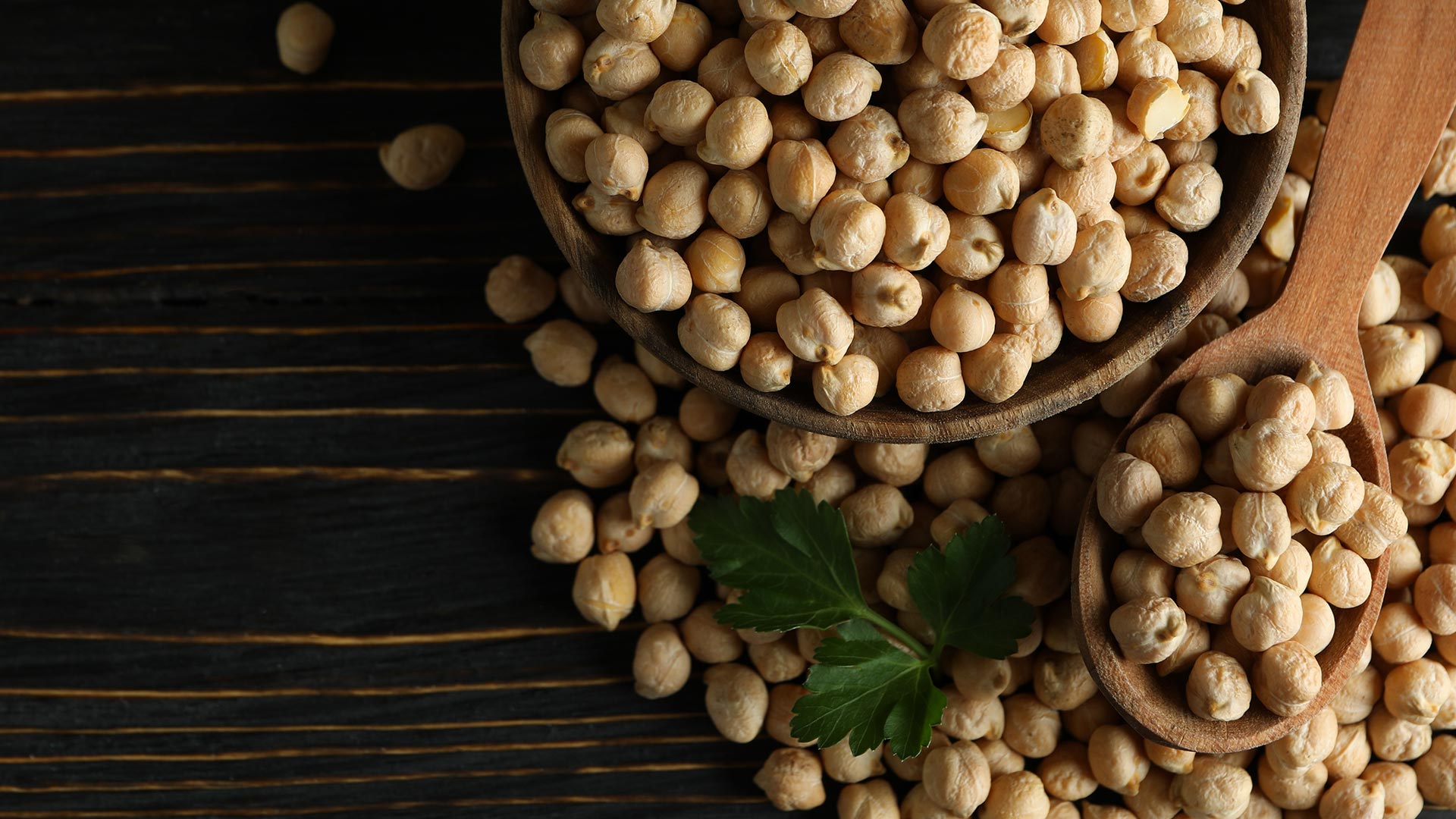
Chickpeas are on the base of the Mediterranean Diet pyramid. It is recommended that these foods should be eaten often in any one week.
Like other legumes, chickpeas are an excellent source of protein, fiber, iron, vitamin B6, folic acid and magnesium and are gluten-free.
The high concentration of nutritional elements in chickpeas has been associated with many potential health benefits.
Nutritional analysis of the recipes
1) Chickpeas with onions & carrots in lemon sauce: aunique meal which is rich in phytoestrogens which are essential for treating a variety of gynecological problems. When eaten with olive oil and onions, chickpeas provide the body with B vitamins which improve memory and mental performance.
Nutritional analysis of the recipe
2) Chickpeas with cumin and herbs in a lemon sauce: Adding cumin and herbs to chickpeas gives us a meal which is rich in natural substances that act as antioxidants and inhibit the action of microscopic free radicals that affect healthy cells. Antioxidants help us to feel healthier and more energetic while also helping to combat skin aging. Additionally, this recipe is ideal if you want to enhance your body’s immune defenses as the active ingredients in the cumin seeds have anti-inflammatory and antiseptic properties. This means that if you are suffering from any pain or inflammation adding cumin to your diet can tackle these symptoms.
3) Chickpeas with red peppers in a lemon sauce: The combination of peppers and lemon in this recipe increases its vitamin C content. This increases the absorption of the natural iron found in the chick peas. Because of this, this meal is a good alternative to meat for vegetarians and those who are avoiding meat for religious reasons. In addition, a high vitamin C intake is associated with delaying skin aging as vitamin C plays a role in the synthesis of collagen and elastin.
4) Chickpeas with olives and carrots in a tomato sauce: This recipe provides complex carbohydrates (starch) for “fast” energy, and potassium which helps to regulate blood pressure. It also supplies the body with important antioxidant compounds such as vitamins C and E, lycopene and oleuropein. These substances protect the blood vessels, contribute to good blood circulation and stimulate the immune system and skin health